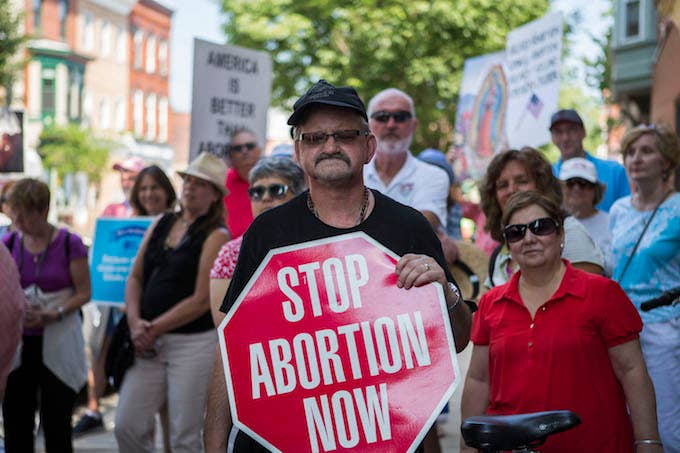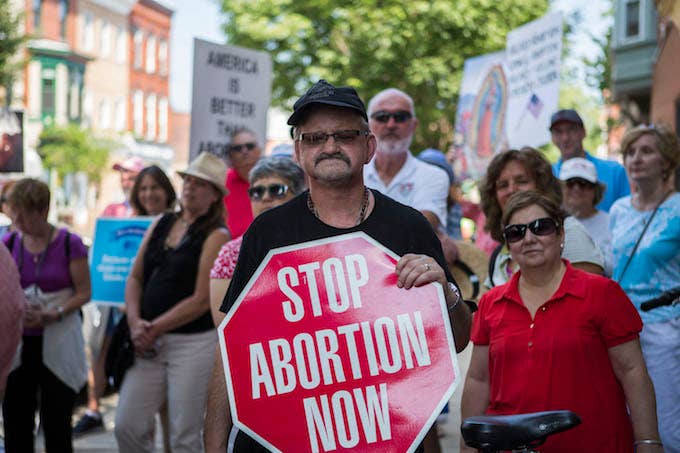
An Alabama man is suing an abortion clinic on behalf of a fetus, in a case that’s said to be the first of its kind in the U.S.
Vice Newswrites that in February, Ryan Magers sued the Alabama Women’s Center for Reproductive Alternatives for giving his girlfriend an abortion two years ago. While Magers asked his girlfriend not to go through with the procedure, she did when the fetus was six weeks old, court documents show.
Magers then petitioned the probate court in Madison County—where the clinic is located—to permit him to “represent the estate of ‘Baby Roe.'" Probate Judge Frank Barger authorized the petition on Tuesday, allowing Magers to sue for the fetus.
Magers’ attorney, Brent Helms told Alabama news outlet WHNT 19 that it’s the first time in the U.S. that an aborted fetus has been given legal rights. “This is the first estate that I'm aware of that has ever been opened for an aborted baby,” Helms told Alabama ABC affiliate WAAY. He said the petition is “a victory.”
NARAL Pro-Choice America president Ilyse Hogue dubbed it a "very scary case.”
This lawsuit is the first to benefit from a measure that was passed during the November midterm elections. In the fall, Alabama amended its constitution to acknowledge “the rights of unborn children, including the right to life.” The amendment was backed by 60 percent of voters, and made Alabama the first state in America to add a “fetal personhood clause” to its constitution.
When it passed, research and policy organization Guttmacher Institute’s Senior State Issues Manager Elizabeth Nash cautioned that the provision could have negative repercussions.
“There are concerns that that language would apply more broadly to something other than abortion,” Nash told Vice, adding, “like perhaps actions by a pregnant person or miscarriage, or like somehow that could be applied to criminalize pregnancy in some way.”

